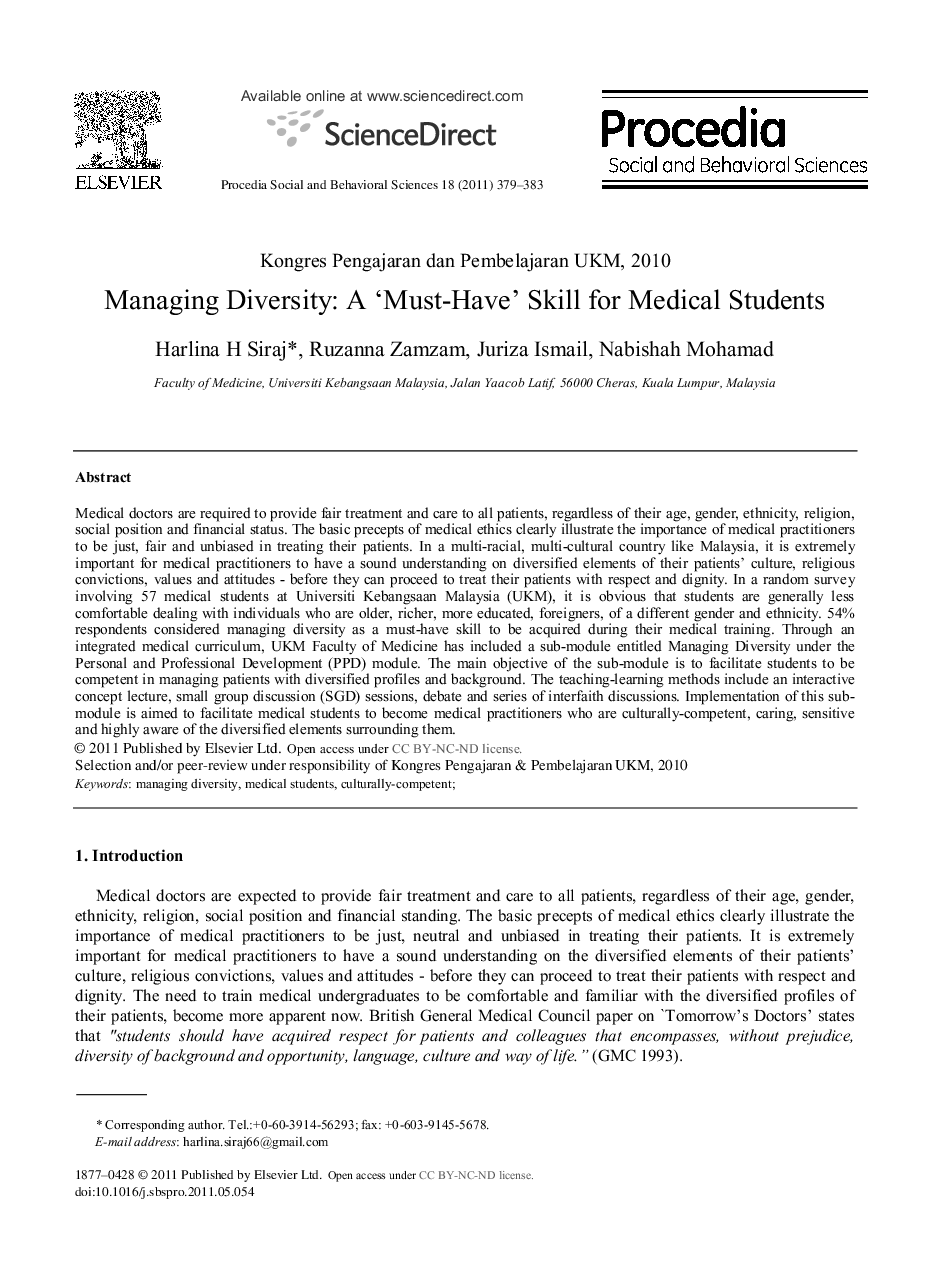| Article ID | Journal | Published Year | Pages | File Type |
|---|---|---|---|---|
| 1124028 | Procedia - Social and Behavioral Sciences | 2011 | 5 Pages |
Medical doctors are required to provide fair treatment and care to all patients, regardless of their age, gender, ethnicity, religion, social position and financial status. The basic precepts of medical ethics clearly illustrate the importance of medical practitioners to be just, fair and unbiased in treating their patients. In a multi-racial, multi-cultural country like Malaysia, it is extremely important for medical practitioners to have a sound understanding on diversified elements of their patients’ culture, religious convictions, values and attitudes - before they can proceed to treat their patients with respect and dignity. In a random survey involving 57 medical students at Universiti Kebangsaan Malaysia (UKM), it is obvious that students are generally less comfortable dealing with individuals who are older, richer, more educated, foreigners, of a different gender and ethnicity. 54% respondents considered managing diversity as a must-have skill to be acquired during their medical training. Through an integrated medical curriculum, UKM Faculty of Medicine has included a sub-module entitled Managing Diversity under the Personal and Professional Development (PPD) module. The main objective of the sub-module is to facilitate students to be competent in managing patients with diversified profiles and background. The teaching-learning methods include an interactive concept lecture, small group discussion (SGD) sessions, debate and series of interfaith discussions. Implementation of this submodule is aimed to facilitate medical students to become medical practitioners who are culturally-competent, caring, sensitive and highly aware of the diversified elements surrounding them
